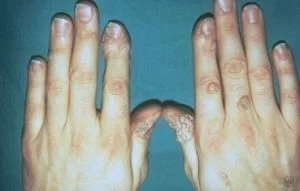Warts are an infection of the skin caused by the Human Papillomavirus (HPV). There are more than 100 strains that affect the skin. And while most are harmless, genital warts pose a risk for cancer. Common warts are termed verrucae vulgaris while plantar warts (on the soles) are termed verrucae plantaris. All warts are spread by direct contact with the skin and they do not enter the bloodstream but may also affect moist areas such as in the mouth or lips.


Since warts are contagious, prevention is based on avoiding contact with the virus or preventing it from entering the top layer of the skin. Keeping the skin moisturized, avoiding cuts and scrapes, and avoiding going barefoot on wet floors or locker rooms may be beneficial. Good hygiene such as hand washing and avoiding picking at warts or shaving over them is important since the razor may spread the virus to new areas of your skin.
Children appear to get more warts than adults due to their immune system not being fully developed as do those who have a weakened immune system such as organ transplant patients. Close to 100% of genital warts can be prevented with the HPV vaccine which is recommended for adolescents preferably prior to possible exposure to HPV. Unfortunately this does not prevent common warts.
Warts may also spontaneously resolve, typically over a few years. A dermatologist is trained to recognize and treat the various types of warts that are commonly found.
